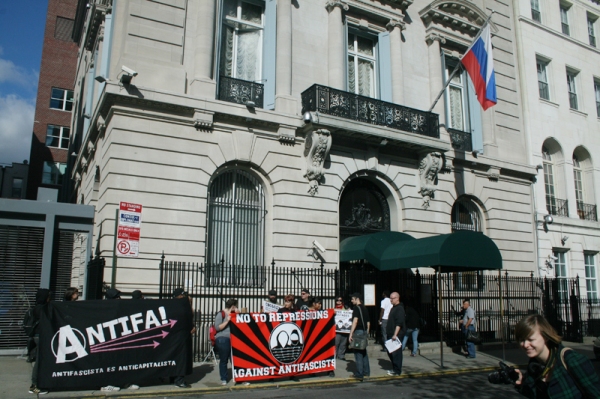Colombia: rights suits against US firms dismissed
Three losses in suits by Colombian victims suggest that US courts may have given US corporations total immunity for any rights violations they commit abroad.
Three losses in suits by Colombian victims suggest that US courts may have given US corporations total immunity for any rights violations they commit abroad.
More than 100 Colombian farmers filed suit with the UK high court against a BP subsidiary over damage to their lands from the company's Ocensa oil pipeline.
Local campesinos are blockading hundreds of oil and gas wells in Mexico's Tabasco state to demand indemnification for lands impacted by a massive spill and explosion.
Hewlett-Packard is being fined for bribing oil company officials in Mexico; meanwhile, the US is investigating possible corruption in Citigroup's Mexican operations.
Mapuche in southwestern Argentina followed through on their promise to block oil drilling by Chevron in their territory—they occupied four oil wells.
Argentina’s Mapuche say they will challenge a hydrofracking deal with Chevron, the multinational scofflaw that refuses to pay $19 billion it owes indigenous Ecuadorans.
A legal tool US advocates have used against human rights abusers for three decades is now "close to a dead letter" thanks to a Supreme Court decision.
The US Supreme Court ruled unanimously in Kiobel v. Royal Dutch Petroleum to reject a suit brought by Nigerian refugees against Shell Oil under the Alien Tort Statute of 1789.
The feared riot squad of the Colombian National Police has been mobilized to Arauca to break up peasant blockades of roads leading to Occidental Petroleum’s oilfields.
Shell Oil faces litigation over Nigerian oil spills in the Dutch courts, while the Obama administration is urging the US Supreme Court to dismiss a similar case.
Gunmen attacked two ships off the coast of Nigeria's oil-rich southern delta, killing two naval troops protecting the vessels and seizing four foreign workers before fleeing.

Lizardo Cauper, president of Peru's alliance of Amazonian peoples, AIDESEP, issued an urgent call for authorities to open dialogue with indigenous communities in the northern region of Loreto rather than militarizing the area in response to mounting social conflicts and attacks on the North Peruvian Pipeline. Noting that the aging pipeline is in chronic disrepair, with repeated spills contaminating the rainforest, Cauper said: "We have made a call that, in place of militarization, they put in place a new pipeline. But it is not enough to have a new pipeline, but to respond to the demands of the people who are living around these oil activities." Regional authorities have called upon Lima to declare a state of emergency in response to paralysis of the pipeline, which delivers crude from rainforest oilfields over the Andes. (Photo: Andina)